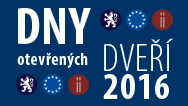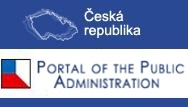Important days
19. 6. 2009
'A Few Sentences' on a Petition From 1989
'A Few Sentences' on a Petition From 1989
Major petition events are part of the history of Czech citizenship, and they repeatedly rose and fell in the dramatic intrigues of the 19th and 20th centuries.
We should remember a few of the most important ones – the St. Václav Committee of March 1848, the Manifesto of Czech Authors from 1917, the Message from the Citizens to the Central Committee of the Czechoslovak Communist Party of July 1968 - which one million people signed within 48 hours – and the famous "Two Thousand Words" text from the same year. 'Několik vět [A Few Sentences],' published on 29 June 1989 is among these. At the turn of the century other actions such as 'Impuls 99,' 'Děkujeme, odejděte [Thank You, Now Go]' and 'Television: A Public Issue.' Petitions are an expression of an engaged citizenry, and by signing, one turns to state power in the good faith that it will hear their voice and remedy the matter. The effectiveness of such actions does not tend to be high, and especially depends on the willingness of state power to resolve the issue. Petition actions were not too successful in Czech and Czecho-Slovak history, almost always due to the arrogance of power, unwillingness or disdain. The completely free, unmanipulated assertion of the right of petition in the communist era is a chapter unto itself. Calling for systemic changes in a totalitarian regime is courageous, provocative and dangerous. Success is improbable at best.
One of the best-known Central European dissidents, Václav Havel, was conditionally released from prison in May 1989 after finishing half of a nine-month sentence. His standing as the most influential man in the anti-regime resistance in Czechoslovakia was amplified by the Western media, who turned his name into a living symbol and raised him up among other icons of the period – Lech Walesa, Alexander Solhenitzyn, Mikhail Gorbachev, John Paul II. A burdensome question stood before Havel: How to make good political use of great symbolic capital. He decided with his closest friends on an open petition action, which would cumulate and amplify the diffuse effects of several unexpectedly convincing signature campaigns from the beginning of 1989, which ensued from the civic unrest during Palach's Week, 15-21 January. 'A Few Sentences' contained 7 recommendations. These were not categorically formulated requests: The release of political prisoners, freedom of assembly, the legalisation of independent initiatives, freedom of the press and public expression, recognition of the rights of churchgoing citizens, the immediate resolution of the catastrophic ecological situation and free discussions on the history of Czechoslovakia after 1948. The authors intentionally chose a considered, non-confrontational tone which was intended to underline their largesse and openness, and to ensure the greatest possible number of signatories to the petition. Reports by the police's sleuths showed that they counted on up to a million signatures.
From the middle of the revolutionary year of 1989, 'A Few Sentences' served as a base for the formation of opposition consciousness. Radio Free Europe regularly made public the growing lists of those who signed. The names above all symbolized the convergence of long-isolated dissent with a thus far conformist intelligence, but the petition was signed by completely unknown people as well. With the stormy developments in neighbouring states, however, impatience grew and doubts began: At a time of a deepening crisis, should a petition be the main means of resistance? With a certain amount of simplification, we can differentiate two lines of the dispute. The silent petition war was considered by radically-oriented opponents of the regime as being insufficient; they preferred tough anti-regime actions – street demonstrations. Aside from this, certain influential personalities in the anti-communist resistance spoke of the necessity to form a traditional political opposition oriented towards negotiations about political changes.
In the end, what determined the character of the pre-November opposition? Havel's concept of 'engaged citizenship' as an initial stage of new politics whose time was just yet to come. Traditional politics did not stand in the foreground as a calling, therefore, but active citizenship did. Society must first mature into full civic self-confidence – and then alternative representations of personality will come out from it, which will replace anonymous governments of political secretariats. Dissident intellectuals are not here to vie for power, but to spur society to action with their words and by their example. Here the traditional assumption was heard with full force that nonconformist intellectuals are the conscience of a nation.
'A Few Sentences' was an expression of an "opposition of moderate progress within the limits of the law," as a leading Radio Free Europe commentator characterized it at the end of the summer and beginning of the fall of 1989. Its goal was to gain a large number of supporters and force the regime to a dialogue on liberalisation and the democratisation of a rigid system. The best-known dissidents repeatedly stated that they may be the last opposition generation willing to sit down at a "round table" with discredited communist politicians.
The communist regime, represented by 11 of the highest governors closely tied with the occupation policy of the Soviet Union, had to see a threat to their existence and highest interests from the non-radical opposition as well, because the petition nonviolently carried a message of the society's complete liberation from the control of the communist party. It later chose the normalisation concept of intimidation and persecution, in which police and judicial bullying were accompanied by mass propaganda. The top story in the Rudé právo newspaper carried the completely inadequate but highly admonitory headline of "He who sows the wind reaps the storm."
On 28 June, a day before "A Few Sentences" was made public on Radio Free Europe, a teletype was sent to regional and district secretariats. Only a "necessary circle of functionaries" was supposed to be "orally" familiar with the wording of the petition. Why the caution? Apparently because of the moderate content of the petition, which was from a civic standpoint so non-confrontational that it could awaken an unanticipated reaction among uninitiated party members. The fears had their foundation: Certain liberally-attuned rank-and-file communists requested the publishing of 'A Few Sentences' in Rudé právo and an open polemic with its content.
Except that this was exactly what Jakeš' presidency wanted to avoid at all costs. Luckily for him, most party cadres had immediate fealty drilled into them, and - without even reading the petition – they called for a bold settling of scores with its signers. The new "provocation of anti-socialist elements" was supposed to be wiped out in the traditional way. Some passages in the appropriate internal party instructions bear witness to the fears of an ever more nervous and irritated leadership: "Criticism of our own flaws must not be carried out in such a way as to be used against us by enemy forces." Jakeš' "rebuilding" allowed for criticism, but only with strictly-set rules and limits. More precisely: Only the party itself could criticize its own flaws.
The propaganda department of the Central Committee of the Czechoslovak Communist Party prepared an internal commentary on the individual points of the petition, the party presidency gave its blessing, and on 7 July 1989 it was sent to the regions and districts. The petition was presented as an insolent pamphlet, which would help "enemy forces" to overcome their isolation, "dismantle" and "liquidate" the socialist system and replace it with Western-style capitalism; it intentionally ignores the reality of "rebuilding" and "parasites" on existing problems, with which the Party, supported by the vast majority of Czechoslovak citizens, was successfully dealing with. What must the party do now? "Unify, not allow indecision and skepticism, elevate mass political work and all ideological activity, move actively and decisively, avoid sectarianism and liberalism, react calmly and with deliberation, argue dispassionately."
Arguments to individual points of the petition are a constantly living example of the delusional ambiguity of political language:
- No one has been tried for political reasons in the Czechoslovak Socialist Republic, only for specific criminal acts named in the law.
- Freedom of assembly is fully guaranteed by the Constitution, but it does not apply to those who support "anarchism" and "criminal elements," and especially for signers of 'A Few Sentences.'
- Every citizen may start a group, association or organisation, but only socialistically-oriented and with the agreement of the state as led by the communist party.
- Independent initiatives are not "criminalised and persecuted," as they themselves claim, but in accordance with the law they are "legally prosecuted."
- Neither direct nor hidden censorship exists in Czechoslovakia, and freedom of expression is only "limited to certain institutions which having in mind the public interest.
- Religious freedom is fully guaranteed by the Constitution, but "commitments to provide for the needs of religious citizens has been taken over by the Czechoslovak state.
- "The Party and the state are well aware of flaws in the area of the environment, and are successfully resolving them, and welcome ideas and suggestions, but "cannot agree with demagogic demands which instead of rational solutions turn the people against the socialist system."
- No one is preventing the free discussion of the assumptions and effects of the crisis in 1968-69, provided they are in accordance with the regime's ideological tract "Lessons from the Crisis Developments in the Party and in Society Following the XIII Czechoslovak Communist Party Conference in 1970."
So what was the 'Few Sentences' petition, which was signed by 40,000 citizens as of 17 November 1989, good for? It formed opposition consciousness for a significant part of Czech society and greatly undermined the barriers of fear of the police state. And what was it not? It did not become a decisive factor in starting systemic changes, and did not create a political base for taking over power.
The state did not react much to repeated calls by the leaders of the petition movement to start dialogue. Both sides found themselves in a certain stagnancy. The crisis deepened across society and decisive impulses to political change came from elsewhere.
Author: Jiří Suk




